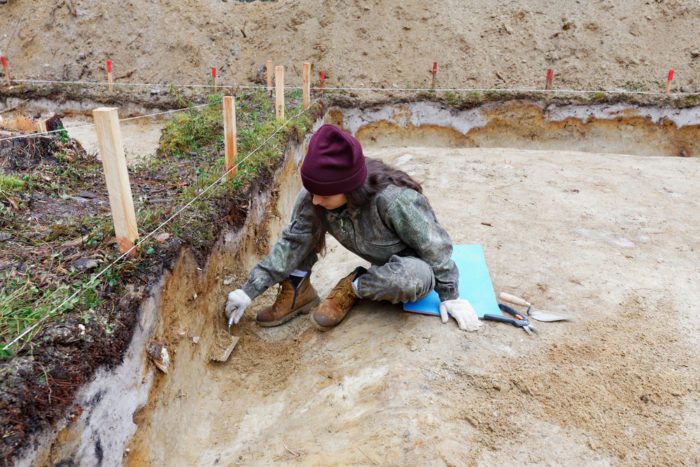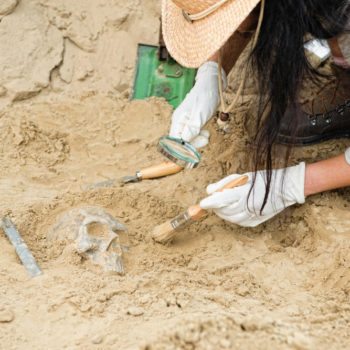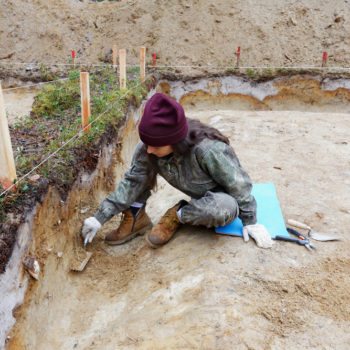Why We Love It
-
$64,290Potential Avg. Salary
-
3.9%Job Growth Rate
-
Growing DemandJob Outlook
-
Get to TravelCareer Attribute
Archaeologists study both history and historical cultures through the excavation, discovery, and analysis of ancient remains. They examine, excavate, and preserve historical artifacts like bones, cave paintings, pottery, and ruins to make observations on cultures of societies who existed throughout history.
Recommended Schools
What is an Archaeologist?
The following job responsibilities are common for individuals in archaeologist roles:
- Use specialized tools to excavate, preserve, and analyze historical artifacts like cave paintings, ruins, pottery, and remains
- Conduct inspections of land prior to development to determine if historical sites would be destroyed by new construction
- Protect and preserve historical sites, and educate the public on the importance of ancient ruins
- Make educated inferences on the significance of artifacts on the cultures of historical societies and historical events
A Day in the Life
Archaeologists study historical events and cultures by discovering, excavating, and preserving historical artifacts and ruins. Archaeologists are primarily concerned with understanding historical societies and events by uncovering remains, objects, and ruins of historical significance that are buried beneath modern land masses or bodies of water. For example, archaeologists may scour Egypt looking for undiscovered cave paintings or pharaoh tombs, or they may explore caves in the U.S. looking for remains or objects that illustrate how Native Americans lived prior to European arrival on the continent.
In general, archaeologists specialize in a specific region. Because they are thoroughly educated in the known history of that region, they are able to make educated inferences about the significance or meaning of artifacts discovered. Some archaeologists are responsible for conducting inspections at construction sites before construction begins to ensure that the project will not destroy historical artifacts. Their knowledge of the region they oversee allows them to determine the likelihood of a land mass to contain buried historical artifacts that would be destroyed by construction.
Other archaeologists work to preserve historical ruins or others areas of significance. For example, they may work in national parks—such as Mesa Verde—educating the public on the significance of the Ancestral Puebloan cliff dwellings that are preserved there. Archaeologists in these positions provide education on the civilization of these historical peoples, and conduct further investigations of the area to look for undiscovered dwellings and artifacts that provide information about the history of the area.
Typical Work Schedule
Many archaeologists work full-time during normal business hours. However, they may have variable working schedules when required to travel for field investigations, working evenings and weekends.
Typical Employers
Archaeologists work for employers in many different industries, including research and development, consulting, and government. Many are employed by federal, state, and local governments to work in national and state parks.
Recommended Schools
How To Become an Archaeologist
The first step in becoming an archaeologist is to earn a bachelor’s degree. Most aspiring archaeologists major in either archaeology or anthropology: degrees from either program provide a foundation for the work you’ll be doing as an archaeologist. After earning a bachelor’s degree, you may be able to gain professional experience working in entry-level positions at national/state parks or with historical museums. Early experience in the field will be important to your future success.
After earning a bachelor’s degree, you’ll need to then move on to earn a master’s degree. Most archaeologist roles require a minimum of a master’s degree, and students commonly pursue master’s in archaeology from field schools that allow them to get both a theoretical and practical education in archaeology. In field schools, graduate students assist with actual excavations and work to help interpret how their findings illustrate the events or cultures of historical societies.
With a master’s degree, you should be able to find work with national parks, research and development companies, or consulting companies in the U.S. However, to work as an archaeologist internationally, you’ll likely need to move on to earn a Ph.D. Most international countries require archaeologists to hold a Ph.D. before they’ll allow them to perform investigations and excavations on foreign lands. A Ph.D. in archaeology will allow you to work internationally, and it will also qualify you for roles as a museum curator or a college archaeology professor.
Archaeologist Salary Data
We’ve provided you the following to learn more about this career. The salary and growth data on this page comes from recently published Bureau of Labor Statistics data while the recommendations and editorial content are based on our research.
National Anual Salary
Low Range
$45,520Average
$64,290High Range
$97,040National Hourly Wage
Low Range
$22/hrAverage
$31/hrHigh Range
$47/hrHow do Archaeologist salaries stack up to other jobs across the country? Based on the latest jobs data nationwide, Archaeologist's can make an average annual salary of $64,290, or $31 per hour. On the lower end, they can make $45,520 or $22 per hour, perhaps when just starting out or based on the state you live in.
Salary Rankings And Facts
#236 Nationally for All Careers
Above Average Salary Nationally
Programs and Degrees
Here are the most common degrees for becoming an Archaeologist. a is usually recommended and specifically a degree or coursework that prepares you for the particular field, see below.
Highest Education Among Archaeologists
- 17% Doctorate
- 37% Masters
- 36.8% Bachelors
- 3.9% Associates
- 4.8% College
- 0.3% High School
- 0.2% Less than High School
Job Growth Projections and Forecast
2014 Total Jobs
7,7002024 Est. Jobs
8,000Job Growth Rate
3.9%Est. New Jobs
300How does Archaeologist job growth stack up to other jobs across the country? By 2024, there will be a change of 300 jobs for a total of 8,000 people employed in the career nationwide. This is a 3.9% change in growth over the next ten years, giving the career a growth rate nationwide of Above Average.
Growth Rankings And Facts
#484 Nationally for All Careers
Above Avg. Growth Nationally
What Companies Employ The Most Archaeologists
| Industry | Current Jobs | New Jobs Needed | % Increase |
|---|---|---|---|
| Research and development in the social sciences and humanities | 2,100 | -200 | 0% |
| Management, scientific, and technical consulting services | 1,800 | 400 | 1% |
| Federal government, excluding postal service | 1,400 | -100 | 0% |














